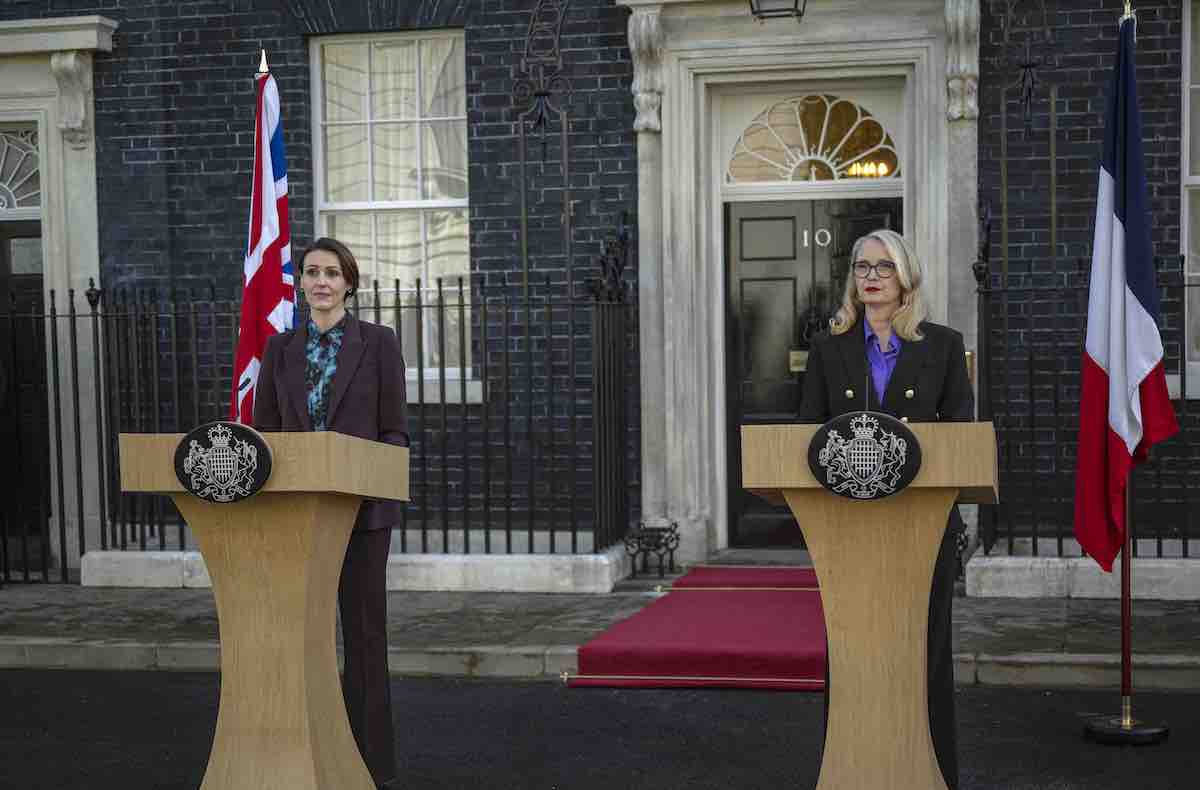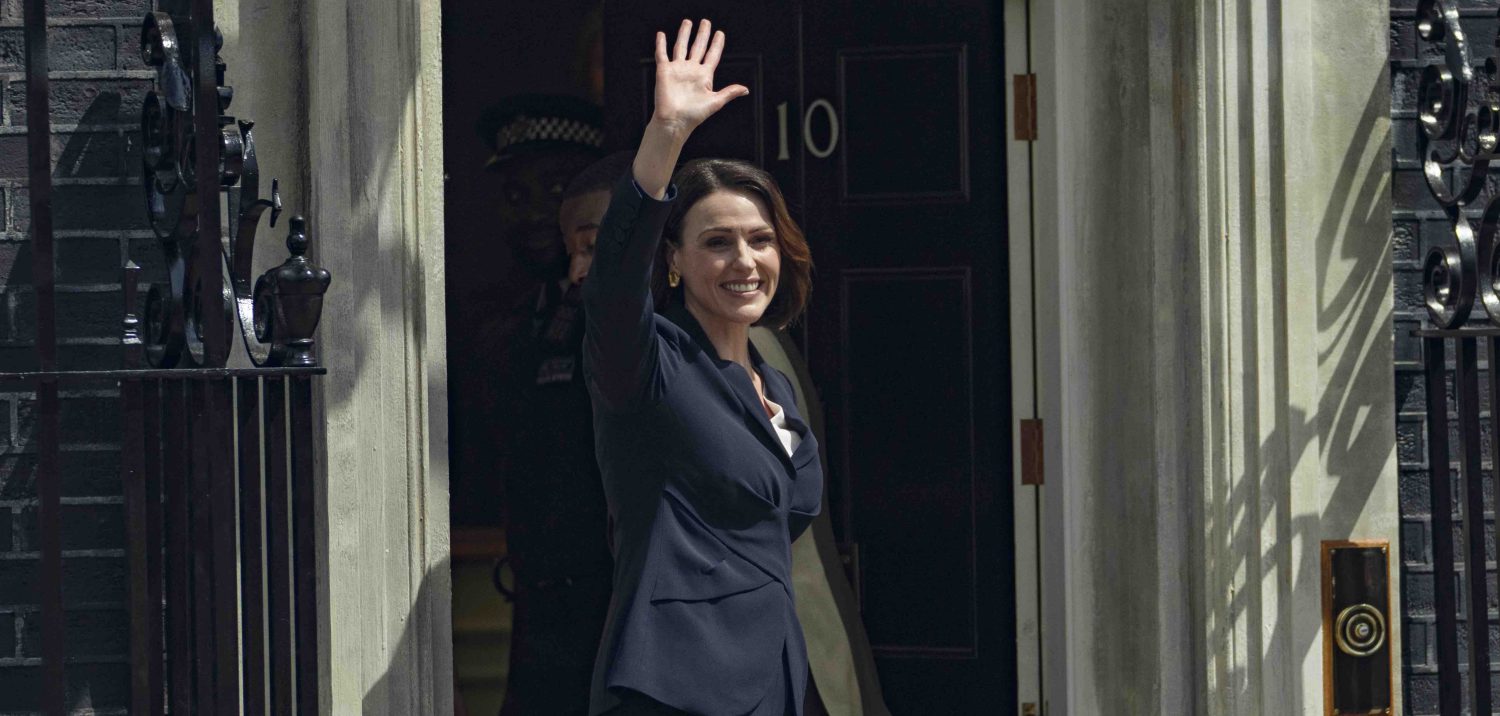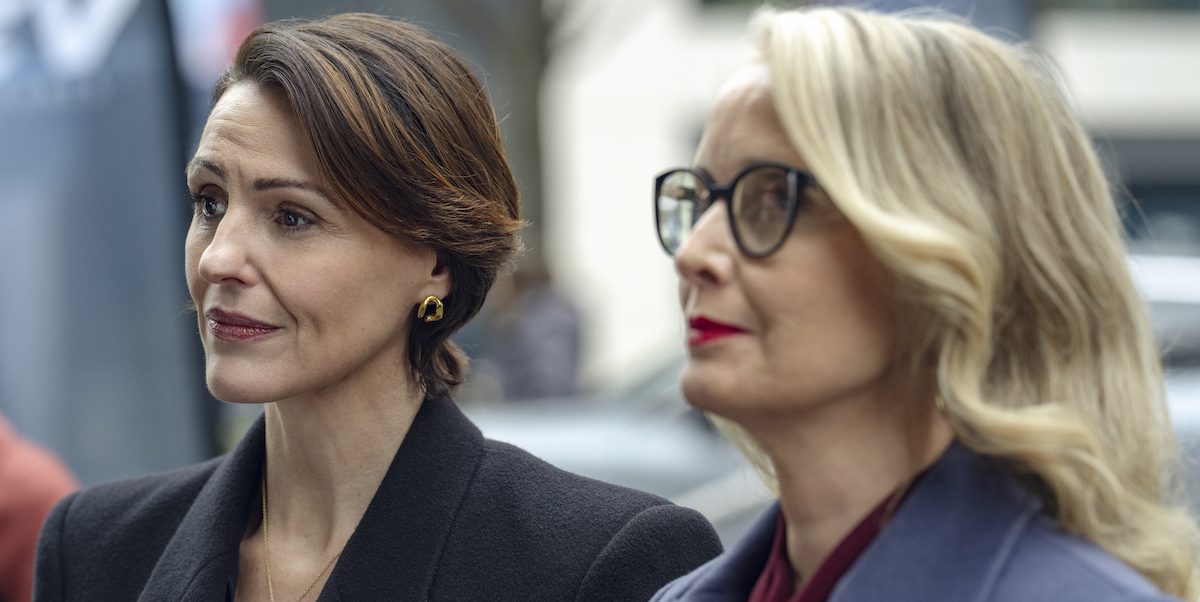Created by Matt Charman, Netflix’s ‘Hostage’ is a political thriller miniseries that takes the audience into the heart of 10 Downing Street. The focus is on the British Prime Minister Abigail Dalton, who is facing flak from the public and the opposition for failing the country on several fronts. Fixing the situation requires her to come to a deal with the French President Vivienne Toussaint, but things aren’t as easy or simple as they might seem. Vivienne has her own agenda to consider, and on top of this, the abduction of Abigail’s husband throws the duo into a state of chaos, which threatens to upend their political careers.
The Fictional Leaders of Hostage are Loosely Inspired by Real Politicians
Set in the current political climate, ‘Hostage’ touches upon real issues relevant to our society today. However, when it comes to portraying the people in power, the writer and actors did not base PM Abigail Dalton and President Vivienne Touissant on any specific people. Writer-creator Matt Charman revealed that the idea of writing the show came from his familiarity with actress Suranne Jones. Having known her for a long time, he wondered what it would be like for someone like her to be in a leadership role. Because Jones exudes a general vibe of relatability and goodwill, he thought about reflecting the same thing in the leaders of two countries, trying to find a common ground. The core idea was to present politicians as human-adjacent, if not entirely human. For this, he focused on details like family, especially children, who remain a major point of concern for real-life politicians.

Reportedly, Charman did look towards real-life people who have been in the top leadership positions of the country, but he refused to reveal their names for the sake of their privacy. He revealed that he talked to these people under the condition that whatever they told him would remain confidential. In the same vein, Suranne Jones did her research. She visited the House of Commons and spoke with several politicians, including the Speaker of the House. She came out of these conversations and interactions with the realisation of what it’s really like to be in a position of decision-making for your country. She also delved into literature, podcasts, and documentaries to understand the position of her character much better. She didn’t base the character on anyone specific, and details and quirks from different people were used to create a fictional person with whom people could sympathise.
Julie Delpy was also consumed by research, where she primarily relied on the interviews before and after coming into power to understand the psychology of the politicians. She, too, refrained from basing Vivienne on a real-life politician. Additionally, she and Jones focused on expressing the personal moods and struggles of their characters through their clothes. Jones revealed that Abigail’s clothes and shoes reflect the kind of day she has had emotionally. Delpy, on the other hand, wanted Vivienne to appear pristine with her clothes and her shoes. Apart from presenting the psyche of the characters, it also highlights their differences, which makes things more interesting.
Hostage was Always Supposed to be a Female-led Story
When Matt Charman started writing ‘Hostage,’ he only ever had two female leaders in mind. The reason he wanted to go with that was because he wanted to explore the dynamics of their equation. “We wanted [to ask] what happens when these two women find themselves against a system that is just trying to destroy them? How do they act differently than a couple of men might? And that was kind of fun to keep playing with,” he said. He thought about whether the story would work with a man at the center of it, and while he confessed that it may have, he said that it wouldn’t have been as much fun. .

A major point that needed to be explored through Abigail and Vivienne’s story was the double standards for women in politics. Delpy noted that, in general, women are scrutinized more for their actions, which means they have to be more careful about what they say or do, as everything about them is bound to be analyzed. In contrast, “a man can be completely erratic and say the craziest thing, and people are still okay with it.” There is also a general bias towards women being in positions of power, which serves as a common ground for Abigail and Vivienne to bond over. At the end of the day, though, it was more about their humanity and their core nature as human beings, which brings the opposing duo together in the time of a crisis and makes them feel more real, flawed, and relatable, despite being completely fictional people.
Read More: Hostage Ending Explained: Is Shagan Dead?


You must be logged in to post a comment.